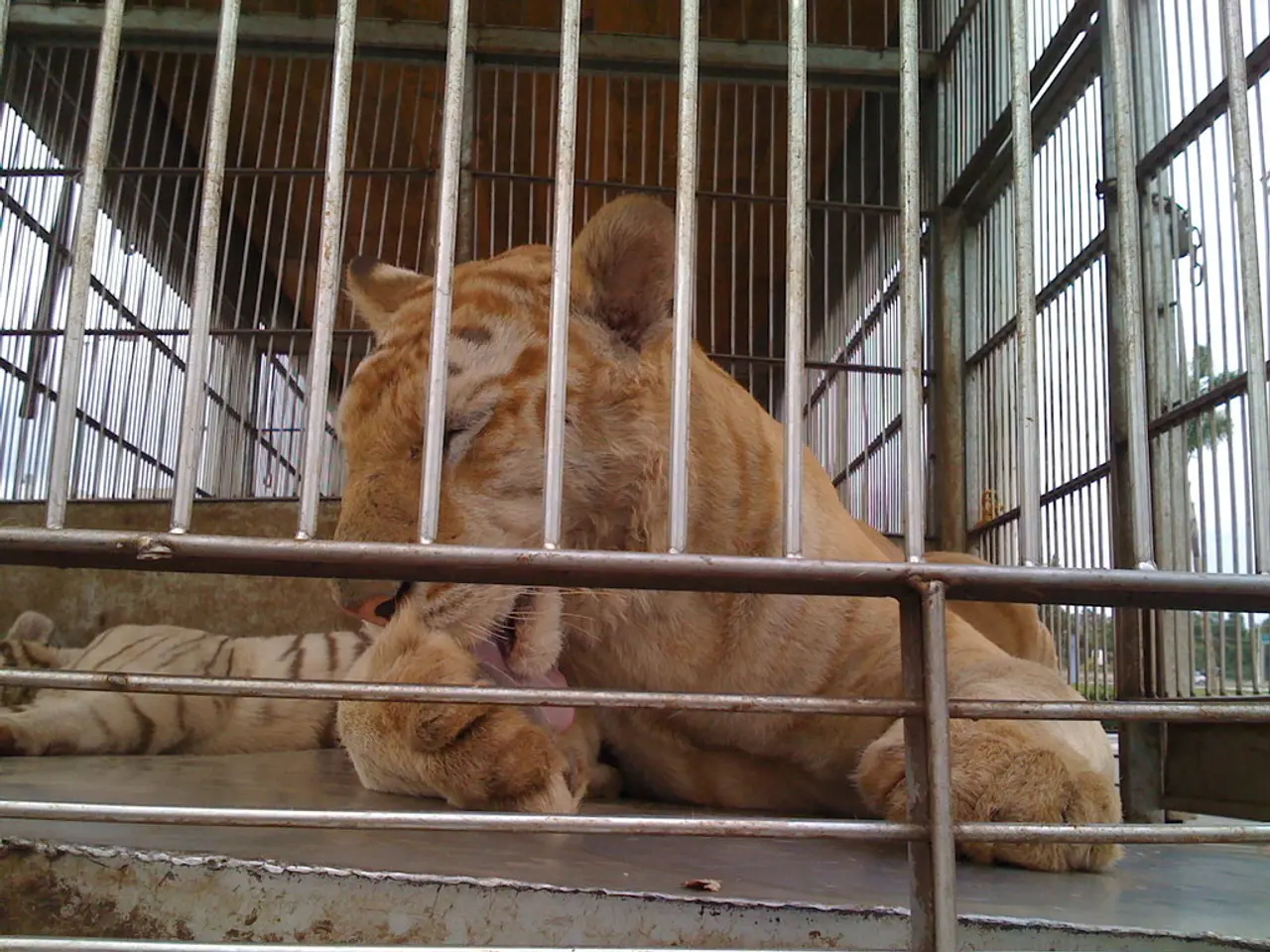Tiger cubs at Leipzig Zoo given sedatives - Zoological Park Leipzig euthanizes three newborn tigers
In a controversial move, Leipzig Zoo in Germany euthanized three Amur tiger cubs just days after their birth. The mother, an inexperienced tigress named Yushka, refused to care for and feed them, leading to their weakened condition and the risk of starvation.
The cubs were born on Wednesday evening and were the first litter of the tiger "Yushka." Despite initial attempts to stimulate milk production in the mother, she did not take care of the cubs for two days, during which they cooled down and became increasingly weaker. A hand-rearing of the cubs by keepers was not an option due to the zoo's stance on species-appropriate wildlife keeping.
When the young were no longer showing active behavior, it was necessary to euthanize them to spare them from suffering through starvation. Zoo Director Jörg Junhold defended the decision, stating, "The euthanization of the cubs was necessary due to the mother's inability to care for them." He also emphasized the zoo's scientific claim to breed animals without malformations.
The incident has sparked a debate about the ethics and practicalities of breeding and caring for rare species like Amur tigers in European zoos. Animal rights activists argue that artificial breeding programs often lead to problems such as maternal neglect and that such breeding has limited conservation value because the animals cannot be released into the wild. They criticize zoos for continuing senseless breeding and the subsequent euthanasia of animals, viewing it as a dead end for species conservation.
In contrast, Leipzig Zoo defends its actions and breeding program, emphasizing their scientific commitment to natural breeding without human "misprints," and intends to continue attempting to breed Amur tigers to contribute to species survival.
This case reflects ongoing ethical and practical debates in European zoos about how to balance animal welfare, conservation goals, and natural behavior in captive breeding programs. It also illustrates public and activist scrutiny over euthanasia and animal management practices in zoos.
Meanwhile, other zoos have faced criticism for their handling of animals in the past. In 2023, Leipzig Zoo caused controversy by slaughtering a healthy zebra stallion and feeding it to its lions. The zoo in Aalborg, Denmark, also caused outrage by asking for pet donations as food for predators.
In a separate incident, around 60 people demonstrated against the killing of twelve baboons in Nuremberg Zoo due to lack of space in July. Animal Rebellion, the group leading the protest, argued that the euthanasia was illegal.
As the debate continues, zoos must navigate the complexities of breeding and caring for rare species while ensuring the welfare of the animals and maintaining public trust.
In light of the controversial decisions made by various European zoos, such as Leipzig Zoo's recent euthanization of Amur tiger cubs due to their mother's neglect, and Aalborg Zoo's request for pet donations as food for predators, there is a growing need for scientific research in the fields of health-and-wellness, mental-health, and fitness-and-exercise for zoo animals. This research could potentially prevent maternal neglect cases like the one with Yushka and offer alternative methods for animal care, ensuring both public trust and animal welfare. Furthermore, advances in biotechnology in the food industry, as proposed by the Commission's program, could potentially lead to healthier diets for zoo animals, reducing the necessity for euthanasia due to untreated nutritional issues.





